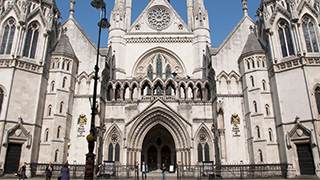High Court to hear Noel Conway assisted suicide claim

An assisted suicide campaigner has won an appeal to have his case heard by the High Court, only weeks after an unsuccessful judicial review. Noel Conway is terminally ill with Motor Neurone Disease and wants a doctor to be allowed to prescribe him a lethal dose when his health deteriorates. He is being backed in his legal bid by assisted suicide pressure group Dignity in Dying.
Lord Justice Burnet, denying permission in Mr. Conway's earlier attempt to have his case heard, held that the Supreme Court had looked at the issue in 2014 and decided that it was a matter for Parliament to review and they did just that. As such the court found that there was no case to bring.
'False narrative' of 'velvet pillow death'
However, it seems that no matter how many times the matter comes before Parliament, UK courts or even the European Court of Human Rights, the euthanasia lobby will continue to have endless kicks at the proverbial can. Prohibitions on doctor prescribed death exist for good reasons. The image of a velvet pillow death surrounded by loving family and friends has proven to be a false narrative. A 2006 Royal College of Physicians study shows there is a clear correlation between the desire for assisted suicide and depression. The study also reports that, with the proper medical and psychiatric treatment, more than 98% of these patients would withdraw their request for assisted suicide.
Just as tragic is that in those jurisdictions which have legalised doctor prescribed death it has expanded out of control. A recent government-sponsored survey in the Netherlands, for example, showed that more than 80% of cases went unreported — a breach of the medical guidelines — and were certified as deaths stemming from natural causes. Verifiable statistics also show the shocking reality that shortly after the decriminalisation of assisted suicide in the Netherlands, the practice of involuntary euthanasia commenced. In 1990, at least 1,000 patients were given lethal injections without express consent, amounting to nearly 1% of all deaths caused that year in that country. An astonishing 0.4% of the deaths in the Netherlands as recently as 2005 were attributed to involuntary euthanasia. Similar scenarios have played out in Belgium and Switzerland.
Nikki and Merv Kenward's 'fight for life'
Nikki and Merv Kenward provide an important counter-narrative to that of Mr Conway. Supported by the Christian Legal Centre, they brought a case challenging the DPP's relaxing of its prosecutorial guidelines relating to medical personnel who participate in bringing on an unnatural death.
Nikki Kenward contracted the Guillain-Barré Syndrome virus shortly after she and her husband Merv married. It is a condition where the body's immune system attacks part of the nervous system. The virus left her in a condition where she was only able to blink one eye. Her lengthy hospital stay and her unlikely recovery taught both Nikki and Merv a great deal about life, death and the questions surrounding end of life decisions. That journey made them realize how easy it would have been for an uncaring hospital bureaucracy or grieving family members to opt for death rather than life.
The Kenwards will continue their fight, including motioning to intervene in the Conway case. Their fight on behalf of the most vulnerable in UK society is one which requires not only vigilance, it requires your support as well. Please join us in helping win this battle for life, dignity and human flourishing.
Related links:
Roger Kiska: High Court refuses Noel Conway permission to bring assisted suicide claim
Non-terminal patient demands 'right to die'
'Locked-in' patients indicate they are happy with life
Merv and Nikki's fight for life
